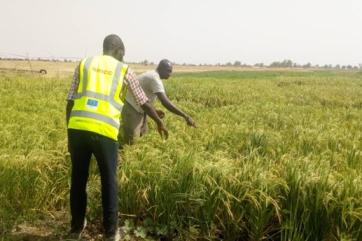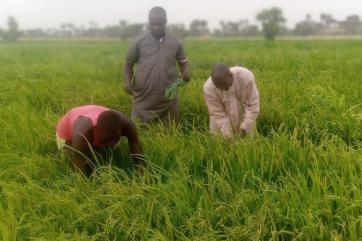How the BRICC Program is transforming farming communities in Yobe state
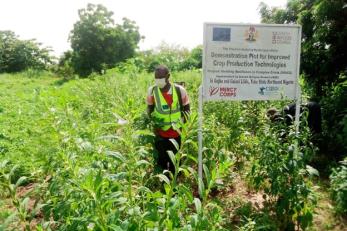
Tetteba is a community in Gulani LGA of Yobe state lived in predominantly by farmers. Tetteba has been seriously impacted by climate change which resulted in land degradation, leading to low crop production and yield.
Also, because of the armed conflict which has been going on for over ten years, the markets have been distorted resulting in low-income levels and food insecurity.
The European Union Building Resilience in Complex Crisis (BRICC) program strengthened the capacity of the farming community through training on improved farming practices such as the use of improved seed varieties /input (organic fertilizer) crop rotation, mulching, mixed cropping, proper storage techniques and enhanced market linkage between farmers and market actors.
After the intervention of the BRICC project, the farmers expressed improved crop yield and readily available market for their farm produce which led to increased income levels. ‘’We now have enough food to eat and extra to sell and meet up other basic needs”. This was the resounding feedback shared by all the farmers who received assistance.
Although 200 farmers were targeted in the community, there are over 300 others in the neighboring community who also need similar intervention.
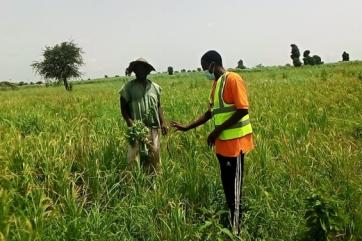
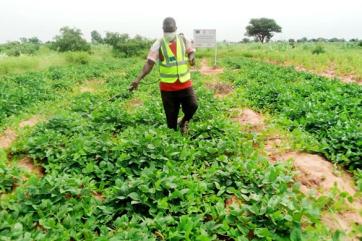
Mozogum is another farming community in Yunusari LGA, Yobe State. The impact of climate change on agriculture has been recognized for as long as people have been farming. Climate change has highlighted a total reduction in crop production. Temperatures are rising, rainfall is increasing in some areas and declining in others, seasonal patterns, pests, and disease distribution are changing, extreme weather events are becoming more frequent and severe, and insurgency has displaced and rendered many farmers highly vulnerable.
The BRICC project implemented a resilient design in the smallholder farming system in Mozogum to enable smallholder farmers to cope with the stress and climate-changing scenarios, by supporting resident farmers to adopt irrigation farming in response to the impact of drought on wet season farming.
Some farmers in Mozogum said that despite the climate changes, they experienced a considerable increase in rice production in Mozogum and in the supply of rice in Geidam market because of BRICC’s intervention.
Even though the project targeted 234 smallholder farmers for strengthening the community, several young farmers have formed their own farming associations requesting the same intervention from the program.
Some of the untargeted groups of farmers have also benefited from step-down training on adopting new methods of farming, good agronomic practices, climate-resilient agriculture, and post-harvest management practices.
With sufficient funding from donors, the government, and supporting agencies, more farmers can be reached with such climate-resilient training and inputs to increase food productivity and supply in communities such as Tetteba and Mozogum.
